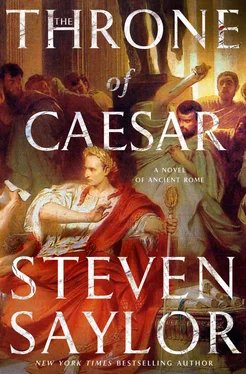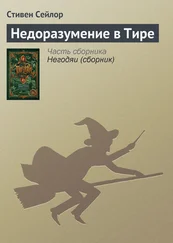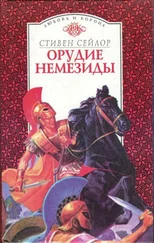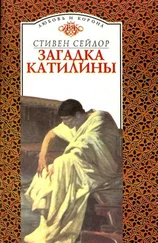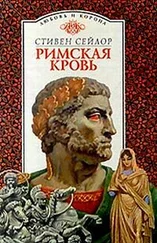Стивен Сейлор - The Throne of Caesar
Здесь есть возможность читать онлайн «Стивен Сейлор - The Throne of Caesar» весь текст электронной книги совершенно бесплатно (целиком полную версию без сокращений). В некоторых случаях можно слушать аудио, скачать через торрент в формате fb2 и присутствует краткое содержание. Год выпуска: 2018, Издательство: St. Martin's Press, Жанр: Исторический детектив, на английском языке. Описание произведения, (предисловие) а так же отзывы посетителей доступны на портале библиотеки ЛибКат.
- Название:The Throne of Caesar
- Автор:
- Издательство:St. Martin's Press
- Жанр:
- Год:2018
- ISBN:нет данных
- Рейтинг книги:5 / 5. Голосов: 1
-
Избранное:Добавить в избранное
- Отзывы:
-
Ваша оценка:
- 100
- 1
- 2
- 3
- 4
- 5
The Throne of Caesar: краткое содержание, описание и аннотация
Предлагаем к чтению аннотацию, описание, краткое содержание или предисловие (зависит от того, что написал сам автор книги «The Throne of Caesar»). Если вы не нашли необходимую информацию о книге — напишите в комментариях, мы постараемся отыскать её.
The Throne of Caesar — читать онлайн бесплатно полную книгу (весь текст) целиком
Ниже представлен текст книги, разбитый по страницам. Система сохранения места последней прочитанной страницы, позволяет с удобством читать онлайн бесплатно книгу «The Throne of Caesar», без необходимости каждый раз заново искать на чём Вы остановились. Поставьте закладку, и сможете в любой момент перейти на страницу, на которой закончили чтение.
Интервал:
Закладка:
Cinna was as shocked as I was. He gripped my arm and gasped.
Caesar staggered sideways. He collided with the pedestal of Pompey’s statue. He leaned against it, barely able to stay upright. One at a time, senators lunged at him to deliver shallow stabs. They were like men taking turns to prove their commitment to some cause, then stepping aside to let another man do the same. Yes, I, too, shall stab Caesar! And I! And I! And I!
The last was Brutus. He stood to one side. One of his hands was bleeding, apparently from an unintentional jab he had received in the confusion. Cassius, next to him, stared at him sidelong and gritted his teeth. “Do it!” he whispered.
Brutus clenched his dagger and stepped toward Caesar.
Caesar tilted his head and squinted his eyes. He shook his head. “Not you!” he wailed. “Not you, too, my boy…”
Without pausing, eye to eye with Caesar, Brutus stabbed low and hard, thrusting his dagger into Caesar’s groin.
When Brutus removed his dagger, Caesar slid downward, his back against the pedestal and his feet spreading before him. His toga was unwound and in shreds. The loincloth beneath was so loosened that it barely concealed his genitals. His mouth bubbled with blood that ran over his chin. Caesar gazed down at himself. Awkwardly, he gripped a fold of his toga with his right hand and tried to cover himself. Perhaps he was trying to stanch the wound made at his groin by Brutus, which gushed with blood.
Caesar’s eyes rolled up. His arms fell to his sides. His body slumped. His left hand, still clutching the note given to him by Artemidorus, opened, so that the little scroll rolled onto the floor.
“Jupiter help us,” whimpered Cinna. “He’s dead!”
The assassins surrounding Caesar all took a step back. They stared at their handiwork. Some looked appalled, others jubilant.
“We’ve done it,” said Cassius. “We’ve actually done it.”
Brutus raised both fists in the air, one bleeding and the other clutching his bloody dagger. “The tyrant is dead!” he shouted. “Long live the Republic!”
Others joined in the cry. “Long live the Republic!”
They were shouting to an empty chamber. Even before Caesar was dead, the retreat of their fellow senators had become a stampede. No room had ever been emptied of so many occupants in so short a time. So much for the steadfastness of the Roman Senate! Men loyal to Caesar feared they would be next to die. Men sympathetic to the assassins also fled, being unarmed and having no idea what might happen now. Even Cicero had vanished.
Brutus looked disappointed, like a man ready to make a speech who suddenly has no audience. “Where in Hades have they all gone?” he muttered.
“Cowards and sycophants, every last one of them,” said Decimus. “They have the courage of slaves.”
“Never mind, we shall make our arguments directly to the people under the open sky,” said Cassius. “The citizens of Rome will rejoice, now that the Dictator’s dead. They will welcome the gift of liberation with open arms. Mark my words, Lepidus and the rest of Caesar’s lapdogs will be as meek as lambs once they see the mood of the city. Watch out, or they’ll try to take credit for the tyrant’s death themselves!”
I saw Gaius Casca stare at Cinna and then at me. “What about these two?” he said.
“Perhaps we should kill them as well,” said his brother.
“And Antony. Don’t forget Antony!” said Cimber.
“We discussed this already,” snapped Cassius. “We are not going to kill Antony, or anyone else, unless they give us just cause.” He looked askance at Cinna. “We are certainly not going to kill Rome’s foremost poet, never mind his slavish devotion to the Dictator.”
“What about the other one?” said Cimber. “The upstart in the toga?”
Brutus stepped toward me. “It’s certainly tempting. Do you want to know a secret, Finder? I hesitated for a long time before deciding to throw my lot with these brave men. I was torn. I suffered an agony of indecision. Do you want to know what made up my mind? It was the idea that Caesar was going to put the likes of you in the Senate. Gauls and Etruscan soothsayers were bad enough, but Gordianus the Finder, senator of Rome— that was the last straw! Well, you can take off that toga and leave it right here. You shall never be a senator now.”
I took a deep breath. I straightened my back and felt the weight of the toga on my shoulders. Instead of retreating, I stepped onto the dais. I met Brutus’s gaze as I passed him and strode toward the pedestal where Caesar’s body lay slumped.
I looked up at Pompey’s statue. How dignified the Great One looked—the stately pose, the lofty brow, the enigmatic smile. Then I looked down at Caesar. How common and tawdry he looked, like any other corpse. Even the brightest flame leaves behind only cinders.
Flies had already found a patch of blood next to the scroll that had slipped from Caesar’s fingers. I knelt down, flicked the flies away, and picked up the little scroll. It was smeared with blood. No one saw me take it, or if they did, no one cared.
I returned to Cinna and took his arm. We began the long walk across the chamber, toward the entrance .
“Write a poem about this !” shouted Cimber. Beside me, Cinna flinched and then began to weep.
When at last we stepped outside, onto the porch of the Senate House, I could wait no longer. I unrolled the blood-smeared piece of parchment.
The first word was Greek:
προσοχή
“Beware”—the very word that had been written in the sand in front of Cinna’s house. I felt a chill.
The next word was also in Greek, and meant “today.”
This was followed by a list of names. I whispered as I read them.
“Marcus Junius Brutus. Decimus Junius Brutus. Gaius Cassius Longinus. Gaius Servilius Casca. Publius Servilius Casca. Lucius Tillius Cimber. Gaius Trebonius…”
There were many more names, all written in very small letters by a very fine hand.
Artemidorus, working in the house of Brutus, trusted by him, had become aware of the conspiracy. Somehow, he had even discovered the names of the conspirators and had written them down. And he had decided, at the last moment, to warn Caesar. But too late …
Artemidorus had discovered what I had failed to discover, what Caesar himself had vaguely suspected, what Cicero had suspected as well. Cicero’s name was not on the list—a relief to me, if only because it meant that Cicero had not made a complete fool of me by feigning ignorance and playing a part to distract me.…
“Out of the way!” shouted a voice behind me.
Leaving the chamber, led by Decimus, the assassins pushed past Cinna and me. They proudly held their daggers in the air. Caesar’s confused and frightened lictors, stationed in the square below, scattered before them. When Decimus reached the foot of the steps, he put fingers to his mouth and made a shrill whistle. A moment later his troupe of gladiators came pouring out of the nearest theater exit. Now it was clear why Decimus had devised a pretext for having his gladiators close to the Senate House—to fight for the survival of the assassins if things had gone badly, or to provide an armed escort if things went well.
Suddenly, I spotted Antony in the courtyard below. He was alone. Staying far to one side, keeping his distance from the assassins, he rushed up the steps toward Cinna and me. His face was ashen.
“Is it true?” he asked.
“You see the bloody daggers, don’t you?” I said.
Antony moaned. “Trebonius lured me away. I should have known. I should have suspected something.” He shook his head. “His body…?”
“Inside,” I said. “See for yourself.”
Читать дальшеИнтервал:
Закладка:
Похожие книги на «The Throne of Caesar»
Представляем Вашему вниманию похожие книги на «The Throne of Caesar» списком для выбора. Мы отобрали схожую по названию и смыслу литературу в надежде предоставить читателям больше вариантов отыскать новые, интересные, ещё непрочитанные произведения.
Обсуждение, отзывы о книге «The Throne of Caesar» и просто собственные мнения читателей. Оставьте ваши комментарии, напишите, что Вы думаете о произведении, его смысле или главных героях. Укажите что конкретно понравилось, а что нет, и почему Вы так считаете.
